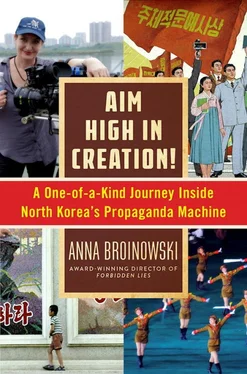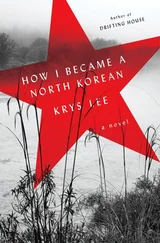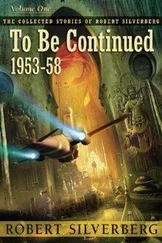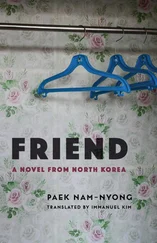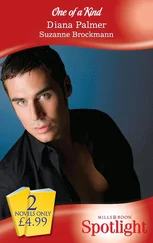“Positions!” calls Ri, and Mr. Wang drops the boom to answer his phone. He wanders off, and Ri scowls but doesn’t resist as I attach a radio mic to his lapel. He knows he has to let me shoot my film, so I will act in his. “Action!” he yells finally, and I sashay over to Husband Dresnok as sexily as I can, hips gyrating and eyelashes fluttering, reaching up to seductively dab his huge, sweaty forehead. He freezes in horror, and the entire crew titters.
Sun Hi turns bright red: “Comrade Ri said offer him the cloth, not touch him with it!” she says, trembling with embarrassment.
The frustrated Ri slumps in a deck chair under Lady Di and stares at his script for a very long time. “We’ll just have Dresnok pick up the cloth alone,” he declares finally—and sacks me. I slink off under the Dresnoks’ gloating gaze, back through the shadowy Underfloor. Team Gas follow in supportive silence. I feel like I’ve let down my country.
In the foyer, Ms. K has good news. Lizzette’s email got through: the contract is good to sign. But Guk, the rushes checker, looks worried. I ask him what’s wrong, already preparing myself to kiss our footage goodbye. “I am sorry, but I cannot view your drives,” Guk says, and I realise what the problem is. Our high-res Sony files are recorded at the latest codec, viewable only with sophisticated software. North Korea doesn’t have it. I copy the software onto one of the drives and hand it to the ecstatic Guk. He hurries back to his comrades on Floor Five in a state of geeky euphoria. If Kim Jong Un’s next rocket launch is a success, I sure as hell hope it isn’t because I just gave North Korea QuickTime X.
“Let us dine with the workers of the Pyongyang Film Studio!” Ms. K beams, and I remember, a little sadly, that in forty-eight hours we’ll be gone. Team Gas is with us right to the end: Q’s surveillance services are still required on tomorrow’s trip to the DMZ. But the North Korean filmmakers are wrapped. We join them in the meadow of Kim Jong Il’s European film set, where a picnic table has been spread with platters of shredded cabbage, kimchi, and beef. The braziers are already smoking, and the artists are all there in floral barbeque aprons: Mr. Pei the composer, Mr. O the cinematographer, Mr. Kang the designer, Ms. Jang the rom-com writer, the April 25 Military Film Studio director, actors Ms. Yun and Ri Yon Chol, and Mr. Ri and his crew—but thankfully, no Dresnoks. Pak, the respected leader, stands and welcomes us with glasses of soju . We tie on our aprons and sit down.
“Anna, I will come out of my tomb to help you make your movie,” says Pak with a charming smile, and everyone toasts our project.
“I hope The Gardener will advance Australian and DPRK friendship,” Ms. Jang adds warmly. “There are lots of movies depicting motherly love. But your film says the best way to show it is to pass to the next generation a clean environment. That’s a novel idea to me, and why I like your film. When it’s made, people will learn not just about green issues, but how we can show our love for our children.” The filmmakers nod solemnly, and we all toast each other again. Then, with the speechifying out of the way, everyone slaps beef on the braziers and gets down to gorging. Nic and I film and graze, enjoying the camaraderie of our North Korean friends. They chat in the soft afternoon light, the aprons shielding their pristine shirts from the sticky barbeque.
“Do you ever fall in love with your leading men?” I ask Ms. Yun, who is unusually relaxed, having eschewed her normal tea for soju . She giggles. “Goodness, I’ve acted a married woman so often, I can’t fall in love with my partner every time. He’s normally a soldier or a worker, and I go into character to act the feeling. But I never fall in love to the point of destroying my family.”
Pak raises his glass to her fondly: “Well said, Comrade Yun. You might find this unfamiliar, Anna, but here we consider the whole country one big family, and look out for one another. When we make a film, it’s a microcosm of society. As the director, I take on the father’s role. I care for everyone. Every morning, I look at everyone’s faces—and if someone looks troubled, I’ll inquire. If someone suffers a misfortune, or falls ill, we help that person. We aren’t just creating art, but bringing everyone together into a family with a father, mother, brothers, sisters, and grandchildren. If something goes wrong, the director’s leadership is to blame.”
“What happens to the director, if something goes wrong?” I press Pak, taking advantage of his candid mood. Perhaps he’s decided to let it all hang out, now we’re at our last supper. The Man in Black is out of earshot at the other end of the table. “Directors who fail find it difficult to make a film again,” Pak says quietly. “But if you’re good, you’re given more movies to make, and it can be quite tough. In my case, I’d like some rest, but I keep being told to make new movies. I find it a bit tiring, but directing is the only thing I can do. So I bear with it and keep on going.” I wonder if Pak has the option to retire. He seems strained behind his courtly smile. Does he keep working because he wants to contribute, or because the regime gives him no choice?
If Pak is trapped, then his love for his comrades, and theirs for him, are what sustains him. His wisdom and humour have made him their undisputed leader—the living embodiment of everything Kim Jong Il was meant to be, but wasn’t. Great Man and Cinema recounts unbelievable tales of Kim flying his crews through snow storms in helicopters, carrying their gear up mountains, and even hunting animals for medicine when a scriptwriter’s wife got sick:
The officials said the weather was very inclement and advised him to go when it abated. Comrade Kim Jong Il said they should not postpone, even for a while, to save the patient from death. He put on his fur cap and went hunting that minute. That night many wild animals were caught. Comrade Kim Jong Il was bright with joy as he came back to Pyongyang in a car loaded with them. He told the officials to carry the animals to the scriptwriter promptly. Just as devotion makes the flower bloom even on a stone, so his great love turned into a mysterious elixir of life and enabled the patient to recover from her incurable disease miraculously.
Even if he was having an affair with her, it’s hard to imagine Kim Jong Il shooting lynx in the freezing snow for a lowly scriptwriter’s wife. But I can see Pak doing it. The only person who doesn’t appear to share the general adoration of the man is the bad-guy actor, Ri Yon Chol.
“Hey, Pak, if you’re going to play father, show Anna how to cook her beef!” Ri Yon Chol yells at Pak over the spitting coals—and Pak reaches out with his chopsticks, too late, to pull a charred scrap of meat off my brazier.
“You telling me how to do my job, you bastard?” Pak grins—but there’s anger in his eyes. It’s the same animosity I noticed when they rehearsed on the hill: whatever history these two share, it’s not pleasant.
“What movies have you made with Comrade Pak?” I ask Ri Yon Chol, hoping he’ll reveal the cause of their conflict. He bursts into derisive laughter: a sure sign I won’t get an answer.
Sun Hi tugs on my sleeve. “Anna, Comrade Designer made something for you,” she says, and Mr. Kang holds out an intricate watercolour of actress Susan Prior in a North Korean smock and floral headscarf.
“I am not familiar with Australian national customs,” says Mr. Kang, his glasses fogged up by the barbeque smoke, “but it is important you dress her practically, with a tool bag of gardening shears, and a scarf to shelter her when she toils. If ladies in your country wear sunhats, that could be okay too.” I thank Kang for his beautiful picture, transported back to the days of hand-drawn animation and costumes sewn from scratch. Our budget stretches to one pair of thrift-shop overalls, and if we’re lucky, an embroidered logo. I decide that Susan must wear a headscarf. The look may have been out since Helen Reddy sang “I Am Woman” in the tie-dyed 1970s, but in honour of Kang, we’ll resurrect it.
Читать дальше
